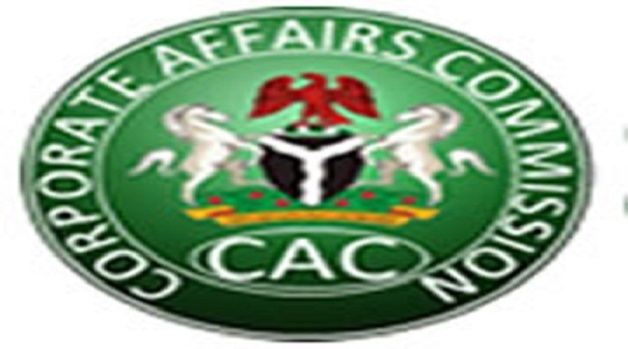News
Teach For Nigeria Graduates Second Cohort Despite the Covid:19 Pandemic

Teach for Nigeria, a non-profit organization with a mission to give all children in Nigeria the opportunity to attain an excellent education, has graduated its second cohort despite the scourge of Coronavirus.
The graduating Fellows showed resilience and passion by dedicating their time and resources towards ensuring that their pupils continued to learn despite the pandemic.
The Group on Saturday, 22nd of August marked the graduation ceremony of the second cohort of its two year Fellowship Program.
These set of 161 fellows, the largest and most diverse cohort so far, will join the Teach For Nigeria’s existing alumni network thereby bringing the number of Alumni to 205.
Inducted in 2018, this set of graduating fellows impacted approximately 9,660 students in 80 schools across Lagos, Ogun, and Kaduna states.
The past two years were spent improving the academic outcomes of students while igniting the love for learning, instilling self-belief and successfully galvanizing parental and community support to aid in the learning process of their students.
Amidst the coronavirus outbreak and school closure, the fellows continued to identify and adopt innovative ways and solutions to ensure that their pupils were not excluded from continued learning.
One of the fellows, Rejoyce Samuel leveraged the use of work packets to ensure that children in her school community continued to learn despite the pandemic while Temitope Ifegbesan and Gideon Ogunfeyinmi launched a project that addresses the parents’ financial inability to cater for their children’s education, feeding and health needs. These Fellows were able to empower mothers in low-income communities.
Chief Olusegun Obasanjo, former president, Federal Republic of Nigeria, gave the commencement speech at the graduation ceremony; he said “I commend the work the fellows are doing, especially during this pandemic, to ensure that children who lack access to online technologies currently being adopted by private schools can learn during this period.
“These, along with many other accomplishments achieved by the fellows during the fellowship programme have shown us that youth leadership coupled with innovation, cooperation and collaboration can indeed be a panacea to the ills in our educational sector and a key to unlocking the full potential of our teeming youth and, by extension, the great potential of our dear country, Nigeria.”
Gbenga Oyebode, board chairman, Teach For Nigeria, in his opening remarks, said: “I salute the fellows and recognize the efforts that they put in to make their 2 years fellowship impactful, working to ensure that education continues despite the COVID-19 pandemic and in communities that lacked basic amenities.
“They have gone over and beyond to be not just teachers, but also mentors and role models to the children they served. I celebrate the graduating fellows and believe that they will continue to serve as change agents that will continue to champion the movement towards educational equity for all”.
Also speaking at the ceremony, Folawe Omikunle, chief executive officer, Teach For Nigeria said: “The great successes and achievements recorded by this set of Fellows has further entrenched our belief in the power of collective efforts in solving problems.
“In only two years of the Fellowship we have seen Fellows teach children under some extremely challenging conditions, yet they have been dogged, innovative and resourceful.
“This set of Fellows were resolved and committed to changing the narrative not just one classroom at a time but a child at a time.”
The Teach For Nigeria Fellowship is a two year full-time paid commitment, designed to build a movement of leaders across the nation who will work towards eliminating educational inequity in Nigeria by teaching in underserved schools in low-income communities.
From the pilot fellowship program in 2017 where approximately 2700 students were reached, Teach For Nigeria has scaled to provide access to education for approximately 10,000 students in marginalized communities in Lagos, Ogun and Kaduna states.
Teach For Nigeria will continue to work towards its goal of ensuring that about 500 Fellows are placed to serve over 30,000 of Nigeria’s most impoverished students by 2021
News
CAC Unveils Measures to Ease Company Registration

Mr. Hussaini Ishaq-Magaji, SAN, registrar-general of the Corporate Affairs Commission (CAC), said the commission is determined to end delays in business registration and service delivery through new digital reforms.

Ishaq-Magaji stated this on Monday at the CAC Stakeholders’ Forum held in Kano, which brought together lawyers, business owners, EFCC, ICPC, and other partners to review challenges and reforms in the commission’s service.
He said the commission had inherited an overstretched registration portal that was unable to cope with the growing demands triggered by compliance initiatives such as mandatory registration of Point-of-Sale (PoS) businesses and annual returns filing.
According to him, the situation created a backlog of applications and placed an unfair burden on customers and staff. “Our call centre and operational departments receive no fewer than 3,000 emails daily, with less than 100 staff attending to them.
“This model is not sustainable and not fair to our customers or our staff. That is why we resolved to change it for good,” he said.
The registrar general explained that the commission had introduced an Artificial Intelligence-powered portal capable of reading and routing thousands of customer requests within seconds.
He added that the AI system, launched in June, had successfully reduced the time for business name registration to less than 10 minutes, a feat he described as unprecedented globally.
“Anywhere you are, without knowing anyone in CAC or paying a middleman, you can register a business name and get your certificate instantly in less than 10 minutes. That is the new Nigeria we are building,” he said.
He, however, acknowledged that other services, such as limited liability company and incorporated trustee registrations, were still experiencing delays due to backlogs, with about 7,000 pending applications being handled by only 63 registry staff.
The registrar-general assured stakeholders that further phases of the digital reform would address these gaps, stressing that technology was now a necessity for the commission to deliver its mandate.
Also speaking, Ahmed Abubakar, Chairman, Nigerian Bar Association (NBA), Ungogo branch, commended the commission for its digital reforms, describing them as a “remarkable achievement.”
Similarly, Usman Umar-Fari, Chairman, NBA Kano branch, urged the CAC to encourage companies to fulfill their corporate social responsibilities and create more opportunities for lawyers.
News
Police Begins Enforcement of Tinted Glass Permits from October 2

Nigeria Police Force has announced that it will begin enforcing the use of tinted glass permits nationwide on October 2, 2025.

SP Shi’isu Adam, Public Relations officer, Jigawa State Command, disclosed this in a statement in Dutse, the state capital.
According to him, online registration and application for the permits is ongoing, and members of the public are urged to follow the stepwise process on possap.gov.ng for a smooth application.
He explained that applicants must create an account using their NIN, BVN, or TIN, verify their account via email, then log in to select the Tinted Glass Permit service and upload their vehicle details along with supporting documents.
“Applicants must carefully confirm all details before submitting their requests and making payments as directed on the portal,” SP Adam emphasised, urging accuracy for fast processing.
He added that after the application, vehicle inspection, and fingerprint biometric capturing will be scheduled at the designated Nigeria Police Force Intelligence Departments.
For Jigawa applicants, Adam confirmed that biometric capturing would be done free of charge at the State Intelligence Department, located at the Police Headquarters in Dutse.
He also warned motorists against patronising unauthorised individuals attempting to exploit the permit process.
“This initiative promotes transparency and ensures road safety for all,” the PPRO said, stressing the command’s commitment to accountability.
The statement further called for cooperation from the public to ensure the smooth enforcement of laws and a safer driving environment statewide.
It added that compliance with the directive safeguards motorists legally and helps combat illegal window tinting.
“Those planning to apply are advised to begin registration promptly ahead of the enforcement date,” SP Adam stated.
News
Takang, Ladid Lead Africa’s Digital Sovereignty Debate @ DACE 2025

How can Africa remain safe and powerful in a world being rapidly redefined by Artificial Intelligence? That pressing question will take centre stage at the 13th Digital Africa Conference & Exhibition (DACE), scheduled for October 28–29, 2025, in Abuja.

The two-day gathering will be anchored by two powerhouse keynote speakers: Dr. Armstrong Takang on Day 1 and Prof. Latif Ladid on Day 2, each bringing unique expertise to Africa’s digital sovereignty conversation.
Dr. Armstrong Takang, Managing Director/Chief Executive Officer of the Ministry of Finance Incorporated (MOFI), will open the conference with a keynote that situates Africa’s digital sovereignty within the broader context of economic reform, institutional innovation, and strategic governance.
A consummate professional and visionary thinker, Dr. Takang has spent decades bridging the gap between public reform and private investment across Africa and the United States. Before his current role at MOFI, he served as Special Adviser to the Honourable Minister of Finance, Budget and National Planning, where he led the MOFI Transformation Team.
His career includes leading Growth Alliance Partners (GAP), a pan-African firm that helped turn around several businesses to create shareholder value, and working at KPMG in New York.
He has been instrumental in designing and implementing key national initiatives such as the Integrated Payroll and Personnel Information System (IPPIS), the Voluntary Asset and Income Declaration Scheme (VAIDS), and the ICT components of EFCC/NFIU systems.
Dr. Takang has also chaired national ICT committees and contributed to landmark policies, including Nigeria’s Content Development in ICT and the country’s 50-year Development Plan. His keynote will highlight how digital and financial sovereignty intersect to secure Africa’s long-term competitiveness.
On the other hand, Prof. Latif Ladid, Founder & President of the IPv6 Forum and Chair of the AI & Blockchain Global Forum, brings decades of global leadership in internet architecture, digital policy, and emerging technologies.
His expertise spans across pivotal roles from IEEE Future Networks to the Internet Society, 3GPP, and EU research on next-generation networks.
Organizers say his keynote will set the tone for the conference, unpacking how Africa can assert digital sovereignty, safeguard its data, and lead in shaping the ethics and standards of AI on the global stage.
“This year’s theme, ‘Sovereign Intelligence: Africa’s Voice in the Global Digital Order,’ isn’t just a concept, it’s a necessity,” said Dr. Evans Woherem, Chairman of Digital Africa Consult. “Prof. Ladid’s keynote will highlight what it takes for Africa to remain safe, independent, and powerful in the new AI era.”
At a time when global powers are racing to define AI norms and secure digital dominance, Africa risks being left behind if it fails to act. Much of its technology remains imported, its data stored abroad, and its languages invisible in mainstream AI systems.
DACE 2025 is designed to change this narrative, by equipping Africa with the tools, strategies, and partnerships to become a proactive co-author of the digital future.
The conference will feature high-level dialogues on digital sovereignty, policy innovation, and cross-border cooperation, alongside exhibitions of homegrown startups, developer workshops, and showcases of African-built AI tools for health, agriculture, finance, and education.
Beyond the panels and showcases, DACE 2025 is expected to produce a concrete roadmap for Africa’s digital sovereignty.
“This isn’t just about technology,” noted Woherem. “It’s about agency, safety, and independence. With Prof. Ladid setting the stage, we hope to leave Abuja with a united vision of Africa’s place in the global AI order.”
With delegates expected from across Africa and the world, the two-day gathering promises to be a defining moment in the continent’s digital journey.

 General News3 days ago
General News3 days agoLBS Described Digital Transformation in Banking, Others as Fueling Nigeria’s Economic Evolution

 E-Business3 days ago
E-Business3 days agoExperts Seek Engagement on AI Adoption for Governance Standards

 E-Business3 days ago
E-Business3 days agoNITDA Empowers 3,600 Teachers Nationwide to Lead Nigeria’s Digital Literacy Transformation

 News3 days ago
News3 days agoFire Incident: Afriland Properties Attributes Afriland Towers Blaze to Inverter Room Malfunction

 News3 days ago
News3 days agoMTN Nigeria Backs Cloud Accelerator Program with N100m

 News3 days ago
News3 days agoPenCom Redesigns Pension Plan, Targets Informal Sector

 Telecom2 days ago
Telecom2 days agoAirtel Africa Extends $100M Share Buyback Plan

 E-Financial3 days ago
E-Financial3 days agoWema Bank Introduces Static Wallets, Instant Settlement Features on ALATPay


























